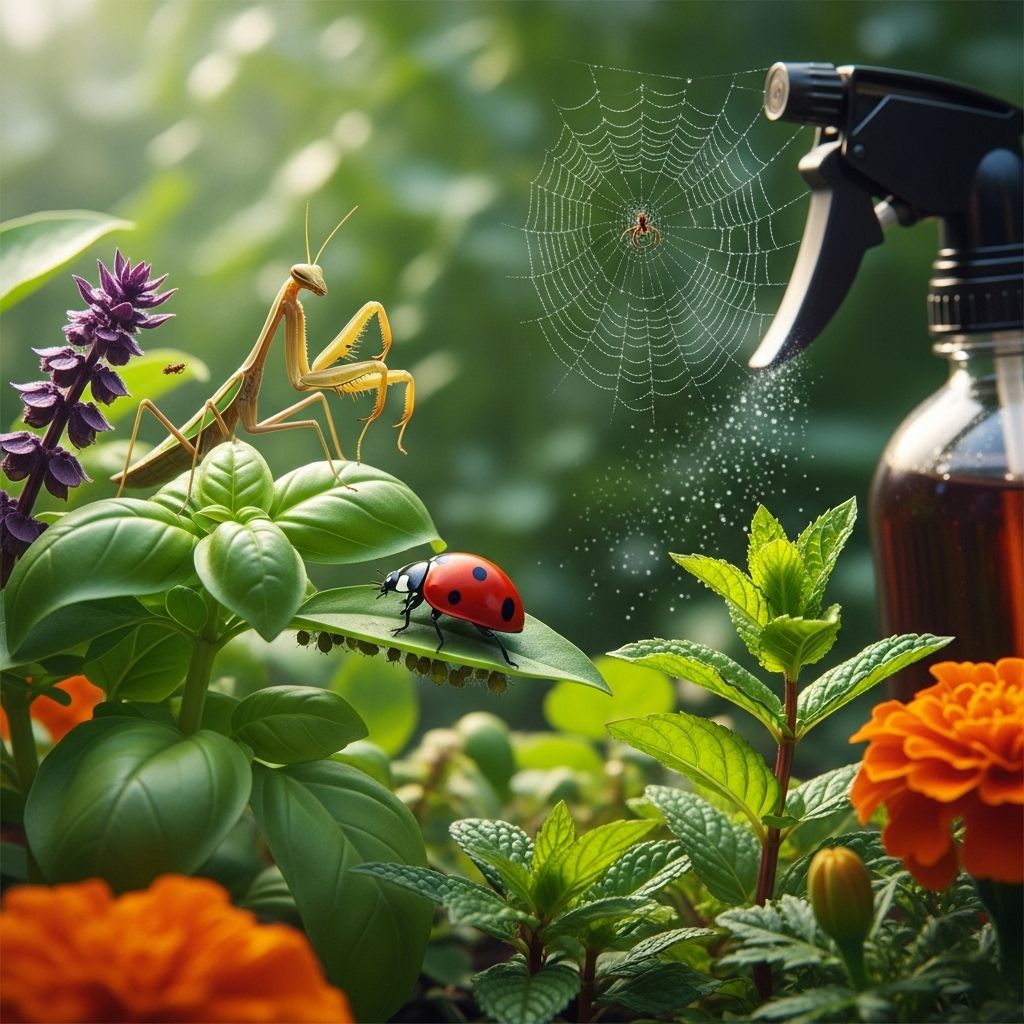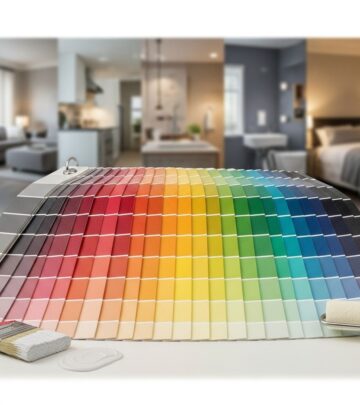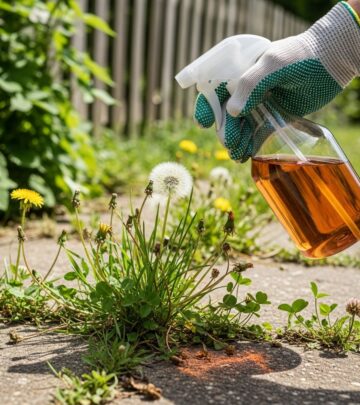Natural Ways to Get Rid of Pests: Eco-Friendly Home & Garden Solutions
Protect your space from bugs and rodents with simple DIY remedies using pantry staples.

Modern households often face pest nuisances, ranging from ants and spiders to fruit flies and mosquitoes, as well as garden invaders like aphids and beetles. As awareness increases around the environmental and health risks of chemical pesticides, more people are turning to natural remedies for pest control. This comprehensive guide covers effective natural strategies for banishing unwanted pests from your home, kitchen, and garden—without harsh chemicals.
Table of Contents
- Understanding Common Pests
- Prevention First: Keep Pests Away Naturally
- Natural Home Remedies for Common Household Pests
- Natural Pest Controls for the Garden
- Eco-Friendly Repellents and Traps
- Plants That Naturally Repel Pests
- Frequently Asked Questions
Understanding Common Pests
Before choosing the right solution, it’s helpful to know what you’re up against. Some of the most common household and garden pests include:
- Ants
- Fruit flies
- Mosquitoes
- Cockroaches
- Spiders
- Mice and rats
- Beetles, aphids, and caterpillars (garden pests)
- Slugs and snails
Each pest has distinct habits and vulnerabilities, but nearly all can be deterred with natural approaches that rely on common household items, beneficial plants, and DIY sprays.
Prevention First: Keep Pests Away Naturally
An ounce of prevention is worth a pound of cure. The following strategies minimize pest infestations before they start:
- Seal Entrances: Inspect and seal cracks around doors, windows, and foundations to block pest entry points.
- Remove Food Sources: Store food in airtight containers, wipe counters regularly, and don’t leave pet food out overnight.
- Eliminate Moisture: Repair leaky plumbing, prevent standing water in sinks or trays, and run dehumidifiers in damp areas.
- Regular Cleaning: Sweep crumbs promptly, mop floors, and vacuum carpets to deny pests hidden snacks.
- Trash Management: Keep indoor and outdoor garbage bins tightly sealed and emptied frequently.
- Yard Hygiene: Keep vegetation trimmed back from your house and promptly remove leaf litter or organic debris.
Natural Home Remedies for Common Household Pests
When prevention isn’t enough, try these targeted natural remedies to repel or eradicate household pests:
Essential Oil Sprays
Many insects are repelled by certain essential oils. To make a simple DIY spray, fill a spray bottle with water, then add 10–15 drops of oil. Shake well and mist in problem areas.
- Lavender oil: Deters moths, flies, and mosquitoes.
- Lemongrass and citronella oil: Repel mosquitoes and fruit flies.
- Peppermint oil: Repels ants, spiders, and even mice.
- Tea tree oil: Useful for keeping away lice, fleas, and flies.
- Rosemary oil: Effective against flies and other airborne insects.
Spray door frames, window sills, under sinks, and other pest-prone areas weekly.
Vinegar Solutions for Ants and Fruit Flies
- Ant deterrent: Mix equal parts white vinegar and water in a spray bottle. Wipe down counters and spritz trails or ant entry points.
- Fruit fly trap: Fill a shallow bowl with apple cider vinegar, add a few drops of dish soap, and leave it near fruit bowls. Fruit flies are drawn in and can’t escape.
Baking Soda and Diatomaceous Earth
- Roaches: Mix equal parts baking soda and sugar, then sprinkle it along roach paths. The sugar attracts them; the baking soda proves deadly.
- Diatomaceous earth: Sprinkle food-grade diatomaceous earth under appliances or along baseboards to kill insects by dehydrating them. It’s safe for humans and pets if not inhaled.
Coffee Grounds for Ants and Slugs
- Used or burnt coffee grounds spread near doorways, garden beds, and cracks can deter ants, slugs, and snails. Their scent masks attractants and the gritty texture is unpleasant to crawl over.
Herbal Sachets to Repel Mice
- Fill small fabric pouches with crushed peppermint leaves, bay leaves, or cloves and tuck them into drawers, pantries, or behind appliances. Refresh monthly for ongoing effect.
Cucumbers as Cockroach Repellent
- The scent of fresh cucumber slices (especially bitter ones) can deter cockroaches. Place fresh slices in areas that attract roaches, refreshing as needed.
Natural Pest Controls for the Garden
Gardens attract a wide range of pests, but chemical sprays can harm beneficial insects and pollinators. Try these garden-friendly solutions:
DIY Garden Sprays
- Soap Spray: Mix 2.5 tablespoons mild liquid dish soap and 2.5 tablespoons vegetable oil with one gallon distilled water. Spray directly onto aphids, whiteflies, and spider mites. Repeat weekly.
- Garlic Spray: Mince 4 garlic cloves, soak in a tablespoon of mineral oil overnight, then strain and dilute with a pint of water. Spray it on plants to repel a wide range of insect pests and fungi. Dilute further when needed.
- Neem Oil: Mix 1 teaspoon neem oil and 1/2 teaspoon mild soap with two pints of water. Neem interferes with insect reproduction and is effective against aphids, beetles, and more.
- Hot Pepper Spray: Blend 15 hot peppers with a liter of water, steep for 24 hours, strain, and spray to repel caterpillars and beetles.
- Onion Brew: Chop 4 cups onion, add to 2 liters water, steep 24 hours, strain, and spray for a range of insects.
- Tomato-Leaf Spray: Steep one quart tomato leaves in one quart boiling water for an hour, strain, and dilute. Sprays aphids and caterpillars (avoid on tomato/pepper/potato plants).
Wood Ash and Beer Traps
- Wood Ash: Sprinkle a fine layer around plant bases to repel slugs and some chewing insects. Reapply after rain.
- Beer Traps: Sink a shallow dish of beer at soil level to attract and drown slugs and snails overnight.
Eco-Friendly Repellents and Traps
Some natural substances serve as both repellents and humane traps:
- Chalk lines: Draw heavy lines of chalk across entry points; ants avoid the calcium carbonate barrier.
- Mint and citrus spray: Boil fresh mint leaves and citrus peels in water, soak overnight, strain, and spray as a repellent for aphids and beetles.
- Bay leaves: Place whole bay leaves in cupboards or corners to deter weevils and flour beetles.
- Cloves and cinnamon: Sprinkle in cupboards to ward off ants and pantry moths.
Plants That Naturally Repel Pests
The right plants can act as a living defense system against pests:
- Lavender: Repels moths, fleas, and flies; plant near entryways or in sunny borders.
- Basil: Useful against flies and mosquitoes; try pots near kitchen windows.
- Marigold: Protects vegetable gardens by deterring nematodes and aphids.
- Mint: Repels ants, moths, and beetles (grow in pots to prevent spreading).
- Rosemary and thyme: Ward off cabbage moths and other caterpillars.
- Chrysanthemums: Contain pyrethrum, a natural insecticide especially effective against roaches and ants.
Comparison Table: Natural vs. Chemical Pest Solutions
| Solution Type | Pros | Cons |
|---|---|---|
| Natural Remedies |
|
|
| Chemical Pesticides |
|
|
Frequently Asked Questions (FAQs)
Q: Are natural pest control remedies safe for children and pets?
A: Most natural remedies use non-toxic ingredients and are generally safe. Always check each ingredient and supervise use, especially when using essential oils or powders like diatomaceous earth, which should not be inhaled.
Q: How often should I reapply natural pest repellents?
A: Many natural sprays and powders need weekly or biweekly reapplication, and after rain if used outdoors.
Q: What is the quickest way to get rid of fruit flies?
A: Use an apple cider vinegar and dish soap trap near sources of fruit flies. Remove attractive food sources and clean surfaces to prevent recurrence.
Q: What are some plants I can use indoors for pest control?
A: Mint, basil, lavender, and rosemary thrive in pots indoors and help repel common household pests when placed near windows, entryways, or kitchen workspaces.
Q: Can essential oils stain surfaces or harm plants?
A: Some essential oils may stain or damage sensitive surfaces and leaves. Always test a small, inconspicuous area first before broad application.
Further Resources
- Combine multiple methods for best results, and track which work best for your unique home or garden.
- For persistent infestations, consult a local extension office or eco-friendly pest management professional.
Using natural pest control is not only effective but also promotes a healthier environment for your family, pets, and local wildlife. With a little experimentation, you’ll find a chemical-free solution that keeps your home and garden pest-free year-round.
References
- https://onlineentomology.ifas.ufl.edu/eco-friendly-pest-control-3-natural-solutions-that-really-work/
- https://mariebostwick.com/natural-garden-pest-control-methods/
- https://www.peacecorps.gov/educators-and-students/educators/resources/making-natural-pest-controls/
- https://yourgreenteam.com/blog/10-natural-insect-repellents-for-your-home/
- https://extension.sdstate.edu/organic-pest-control-methods
Read full bio of medha deb










